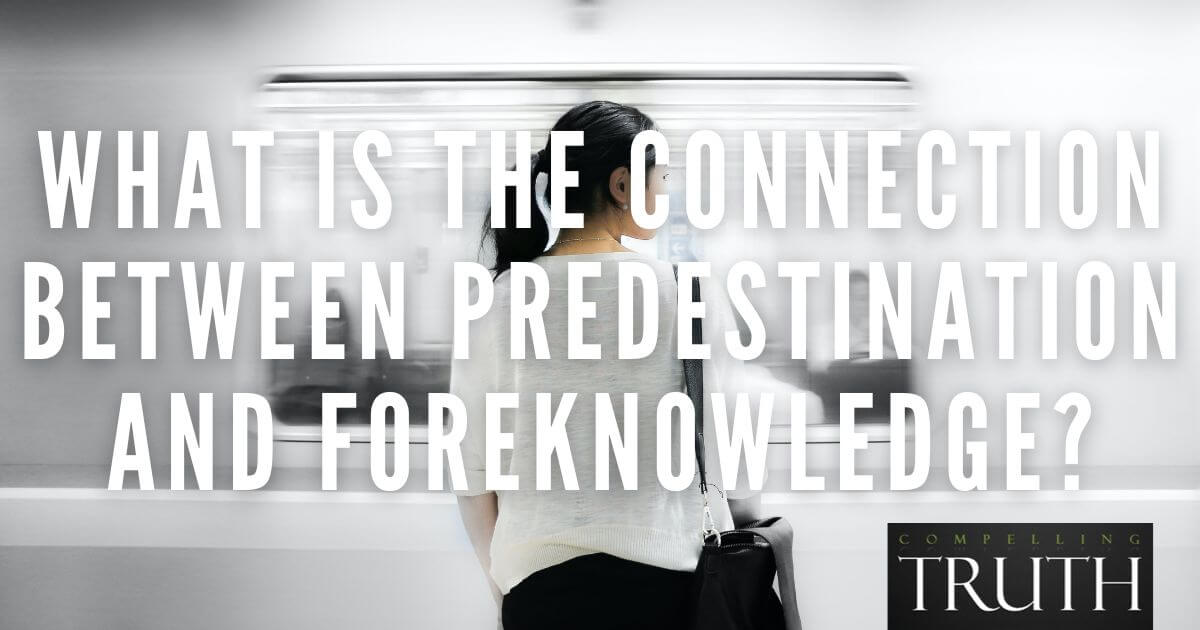Open theism is a system of thought that attempts to deal with the apparent conflict between two seeming truths: the free will of man and the foreknowledge of God. Open theism argues that in order for man to be truly free, God cannot know the future, because if God knows the future, it has already been determined, which means that man cannot make truly free (uninfluenced) choices.
Open theism depends on a presupposition—man's free will. This kind of free will is not simply freedom of choice. We are of course free to choose whatever we like within the bounds of physical limitations. That is, we cannot choose to sprout wings and fly, because it is not in our nature to have that power. But we all know that we make many free choices throughout our lives. The "free will" that open theism discusses is different from simple freedom of choice. It is the idea that a human being is not influenced by God to make one choice over another; it is the assertion that our lives are not directed by a predetermined plan.
This presupposition (that we have "free will" as defined above) leads logically to the conclusion that God cannot know the future. If God knew the future (says open theism), it would mean that the future was no longer potential, but actual; no longer flowing, but frozen. The opposing argument starts with God's foreknowledge and says that if God knows what will happen, man cannot have a truly free, uninfluenced will, and that his future is predetermined.
Open theism starts with the concept of free will and draws the conclusion that God cannot have foreknowledge. However, the Bible states that God does indeed have foreknowledge, as the Psalmist says, "All the days ordained for me were written in your book before one of them came to be" (Psalm 139:16 NIV). Open theism ignores this verse, and leans heavily on other verses that describe God in terms of linear human existence (Genesis 6:6; 22:12; Exodus 32:14; Jonah 3:10). For example, Genesis 6:6 tells us that God experiences regret. How could God regret something He did, if He knew beforehand what would happen? When we experience regret, it is usually because we could not fully foresee or understand the consequences of our actions and therefore stop ourselves from doing the things that would ultimately cause us regret. But how do we know what regret feels like to an omniscient, omnipotent being? What if God knew that He would experience grief and regret because of creating man, and decided that creating us was worth it?
God's ways are not like ours; His thoughts are not like our thoughts—they are higher than ours, higher than the heavens are above the earth (Isaiah 55:8–9). In the end, open theism fails because it attempts to figure out God's mind using man's mind. This is like trying to use a hammer to write HTML code. It's the wrong tool for the job. The best and safest way for man to come to the truth about God is by listening to what He has revealed to us about Himself in the Scriptures. And if there are things we cannot reconcile or fathom, instead of coming up with philosophies that directly contradict the Bible, we should humbly trust His voice (Proverbs 3:5–6; John 10:27; Micah 6:8).
Open theism depends on a presupposition—man's free will. This kind of free will is not simply freedom of choice. We are of course free to choose whatever we like within the bounds of physical limitations. That is, we cannot choose to sprout wings and fly, because it is not in our nature to have that power. But we all know that we make many free choices throughout our lives. The "free will" that open theism discusses is different from simple freedom of choice. It is the idea that a human being is not influenced by God to make one choice over another; it is the assertion that our lives are not directed by a predetermined plan.
This presupposition (that we have "free will" as defined above) leads logically to the conclusion that God cannot know the future. If God knew the future (says open theism), it would mean that the future was no longer potential, but actual; no longer flowing, but frozen. The opposing argument starts with God's foreknowledge and says that if God knows what will happen, man cannot have a truly free, uninfluenced will, and that his future is predetermined.
Open theism starts with the concept of free will and draws the conclusion that God cannot have foreknowledge. However, the Bible states that God does indeed have foreknowledge, as the Psalmist says, "All the days ordained for me were written in your book before one of them came to be" (Psalm 139:16 NIV). Open theism ignores this verse, and leans heavily on other verses that describe God in terms of linear human existence (Genesis 6:6; 22:12; Exodus 32:14; Jonah 3:10). For example, Genesis 6:6 tells us that God experiences regret. How could God regret something He did, if He knew beforehand what would happen? When we experience regret, it is usually because we could not fully foresee or understand the consequences of our actions and therefore stop ourselves from doing the things that would ultimately cause us regret. But how do we know what regret feels like to an omniscient, omnipotent being? What if God knew that He would experience grief and regret because of creating man, and decided that creating us was worth it?
God's ways are not like ours; His thoughts are not like our thoughts—they are higher than ours, higher than the heavens are above the earth (Isaiah 55:8–9). In the end, open theism fails because it attempts to figure out God's mind using man's mind. This is like trying to use a hammer to write HTML code. It's the wrong tool for the job. The best and safest way for man to come to the truth about God is by listening to what He has revealed to us about Himself in the Scriptures. And if there are things we cannot reconcile or fathom, instead of coming up with philosophies that directly contradict the Bible, we should humbly trust His voice (Proverbs 3:5–6; John 10:27; Micah 6:8).



